-
Bipartisan Lawmakers Fight Illegal Wildlife Trafficking, Promote Smart Development for Conservation
›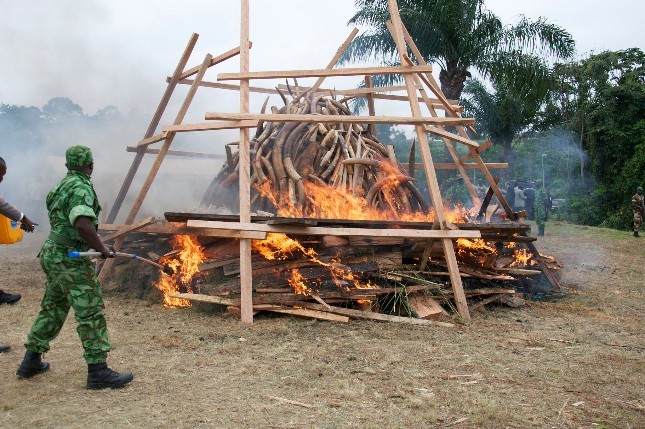
“In the last decade, almost half of Africa’s elephants have been killed for their ivory, and some experts are predicting that both elephants and rhinoceros will be extinct by 2030,” said Nancy Lindborg, President of the U.S. Institute of Peace at a recent event on wildlife poaching and trafficking. The illegal trade in protected wildlife is worth US$7-10 billion—some of which has ended up in the pockets of armed groups like Al-Shabaab and the Lord’s Resistance Army, said Lindborg.
-
The New Slave Trade: Migration, Trafficking, and Terrorists in Libya
›
While dismayed Americans watched the “zero tolerance” policy of family separation unfolding at the Mexican border, across the Atlantic, another shocking migration crisis continues to fester. Behind the grueling headlines of drownings in the Mediterranean Sea, migrants run a gauntlet of abuse through the Sahara desert to reach the Libyan coast. Armed militias and terrorist organizations across the Sahel profit by smuggling people displaced by climate, population, and security crises. While European policymakers struggle to cope with arrivals, their containment approach consistently disregards the root causes that force people to take such unimaginable risks. The high value of these human commodities not only exposes vulnerable migrants to torture, extortion, and even enslavement, but also provides funds for terrorist groups intent on attacking the West.
-
Too Little Too Late: Violence Disrupts Maternal Health Care in Conflict Settings
› “One of the first victims of war is the health care system itself,” said Marco Baldan, the chief war surgeon for the International Committee of the Red Cross. Violence directed at health facilities and workers is common in conflict, despite international laws protecting medical personnel, facilities, and transport vehicles during war.
“One of the first victims of war is the health care system itself,” said Marco Baldan, the chief war surgeon for the International Committee of the Red Cross. Violence directed at health facilities and workers is common in conflict, despite international laws protecting medical personnel, facilities, and transport vehicles during war. -
Big Dams, Big Damage: The Growing Risk of Failure
›August 21, 2018 // By Olivia Smith
Last month, a partially completed dam in Laos’ Attapeu province collapsed, washing away people and villages in its path. Hundreds of people are still missing and more than six thousand are homeless. And after last summer’s hurricanes, U.S. citizens in Houston and Puerto Rico escaped death but were forced to evacuate when dams were flooded. Dam failure can be catastrophic for people, property, and power—and the risks are rising, due to lack of investment in maintenance, growing vulnerability to climate change, and the demonstrated potential of cyberattacks.
-
Driven to Care: Improving Transportation to Reach Maternal Health Care in Conflict Zones
› How much time passes between a laboring woman’s decision to seek care and her arrival at a health facility? Transportation for emergency obstetric care should be swift and timely, but for many refugees in the world’s conflict zones, it is not.
How much time passes between a laboring woman’s decision to seek care and her arrival at a health facility? Transportation for emergency obstetric care should be swift and timely, but for many refugees in the world’s conflict zones, it is not.An analysis of refugee maternal mortality in 10 countries found that transportation problems contributed to more maternal deaths outside of refugee camps, which tend to have better access to emergency transportation services.
-
Water Security in a New Age of Nationalism
›
The idea of a “new middle” or “third way”—a blend of neo-liberal economic doctrines and social policies that was supposed to overcome the dichotomy between mixed economy and free market paradigms—more or less dominated U.S. and European politics for the last two decades. But today, this centrist consensus has been upended by a wave of populist, nationalist parties. Many have won over their electorates by questioning the benefits of free trade and globalization (as well as the international institutions that espouse them), while pursuing expansionary domestic economic policies.
-
Death From Delay: Improving Maternal Health Care in Conflict Zones
› How much time passes before a woman—or her relatives—decide to seek care or emergency medical services during pregnancy? It often depends on how much they know about the services available.
How much time passes before a woman—or her relatives—decide to seek care or emergency medical services during pregnancy? It often depends on how much they know about the services available.This information may be hard to come by in conflict-affected areas, especially among internally displaced women. According to a retrospective study of health care during the 2006 war in Lebanon, 80 percent of Lebanese pregnant women before the war sought antenatal care, while the share of displaced women seeking care was only 34.5 percent.
-
Europe Takes the Lead in Climate, Energy, and Security
›
With the tumultuous NATO summit and a simmering trade war dominating stateside headlines last month, the European Union’s progress on climate-security connections has received little attention. After the U.S. government rolled back its significant efforts in early 2017, the EU and its leading members—particularly Sweden and Germany—picked up the ball. Three significant events herald what could be the start of a new era of climate-security policymaking—one under European leadership.
Showing posts from category security.


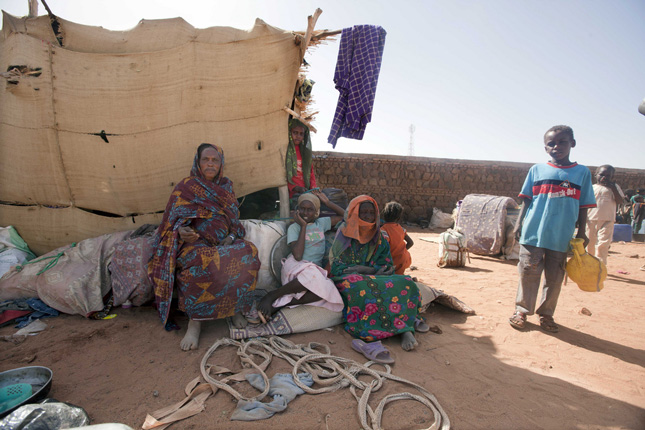
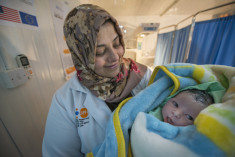 “One of the first victims of war is the health care system itself,”
“One of the first victims of war is the health care system itself,” 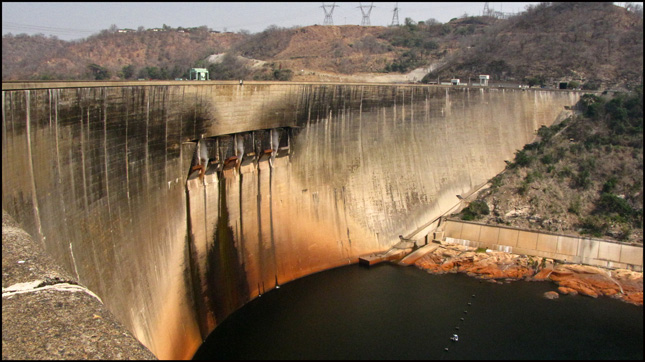
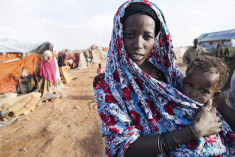 How much time passes between a laboring woman’s decision to seek care and her arrival at a health facility? Transportation for emergency obstetric care should be swift and timely, but for many refugees in the world’s conflict zones, it is not.
How much time passes between a laboring woman’s decision to seek care and her arrival at a health facility? Transportation for emergency obstetric care should be swift and timely, but for many refugees in the world’s conflict zones, it is not.
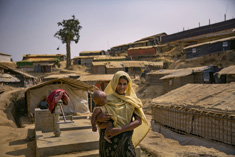 How much time passes before a woman—or her relatives—decide to seek care or emergency medical services during pregnancy? It often depends on how much they know about the services available.
How much time passes before a woman—or her relatives—decide to seek care or emergency medical services during pregnancy? It often depends on how much they know about the services available.


